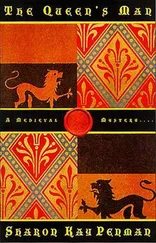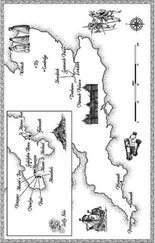Rory Clements - The Queen's man
Здесь есть возможность читать онлайн «Rory Clements - The Queen's man» весь текст электронной книги совершенно бесплатно (целиком полную версию без сокращений). В некоторых случаях можно слушать аудио, скачать через торрент в формате fb2 и присутствует краткое содержание. Жанр: Исторический детектив, на английском языке. Описание произведения, (предисловие) а так же отзывы посетителей доступны на портале библиотеки ЛибКат.
- Название:The Queen's man
- Автор:
- Жанр:
- Год:неизвестен
- ISBN:нет данных
- Рейтинг книги:4 / 5. Голосов: 1
-
Избранное:Добавить в избранное
- Отзывы:
-
Ваша оценка:
- 80
- 1
- 2
- 3
- 4
- 5
The Queen's man: краткое содержание, описание и аннотация
Предлагаем к чтению аннотацию, описание, краткое содержание или предисловие (зависит от того, что написал сам автор книги «The Queen's man»). Если вы не нашли необходимую информацию о книге — напишите в комментариях, мы постараемся отыскать её.
The Queen's man — читать онлайн бесплатно полную книгу (весь текст) целиком
Ниже представлен текст книги, разбитый по страницам. Система сохранения места последней прочитанной страницы, позволяет с удобством читать онлайн бесплатно книгу «The Queen's man», без необходимости каждый раз заново искать на чём Вы остановились. Поставьте закладку, и сможете в любой момент перейти на страницу, на которой закончили чтение.
Интервал:
Закладка:
Florence was kneeling by her mother. Her hands were tied in front of her and she had them raised, across her chest. Her eyes were turned upwards, like a penitent seeking guidance from the heavens.
Maybe He will answer her prayers, Boltfoot thought. He was surprised by his own scepticism, for he had never been one to doubt the existence of God. But then another thought struck him. She was not praying for salvation, but martyrdom.
By the faint light of the moon Ruby Hungate sharpened his long butcher’s blade. On the ground in front of him lay the body of a stag. He had felled it with a single crossbow bolt.
He had brought it here to this dark place in the Forest of Arden not as food but as display. Many people, he knew, felt uncomfortable — even fearful — in the woods by night. But this was his place, his kingdom, and he felt at ease. This was his place of remembering: the strong grip of his father’s hand, the soft light in his mother’s eyes and the dancing smile of his beloved sister.
Hungate had never needed the company of other boys. His father was his only friend. Their time together in the woods was his apprenticeship. They would set off at dawn and spend all the hours until nightfall among the trees and ferns and wild animals. And the boy learnt all their ways and all his father’s skills.
By the age of ten, he could track down an adult fox and kill it with his own hands, wrenching apart the forelegs to tear its vital organs, then removing its skin and fur whole. Only at sunset did they return home, hands red with blood, to his mother and sister, with meat for the pot.
That was his joy. Killing in the wild. Proving to all the beasts of the forest that he was the most cunning of all God’s creatures.
At the age of twelve, everything changed. He was alone.
And he killed his first man.
Now, here in this wood, in the dark, he was in his element. This was the world where he was king. No man or beast could match him here. He worked methodically and alone, without haste. The chase and kill were to be savoured, not hurried.
He took his right ear between thumb and forefinger and counted the ruby earrings set there. Nine in all, and each one payment for a killing. He knew each of them intimately.
From the top: death by poison of an enraged husband whose wife had been seduced by his lordship; a plunge from a cliff for a creditor, made to look like suicide; a drowning in a lake, the body weighted to disappear for ever; a sword thrust to the belly outside a Southwark tavern for one of Walsingham’s dangerous spies looking in places where he should not have been; a dagger through the heart, in the man’s own bed, for another jealous husband; a sword thrust to the belly and neck while stalking deer; the garrotting and skinning of a priest in Scotland; pistol shots to the heart of a man who had insulted Leicester, in the bed of his concubine; likewise the concubine.
Each one had won him a red ruby from the hand of Robert Dudley, the Earl of Leicester.
But for these ones, these deaths in the forest, there would be no ruby, no payment. These were not for his lordship. These deaths were personal and special. The blood debt of his boyhood was about to be paid in full.
With exquisite agility, Hungate scaled the walls of the house to the roof. He stood for a few moments on the rough timbers newly erected by those inside, listening for voices or other sounds. Hearing nothing but the mumbling of a prayer and the crackling of the greenwood fire, he stamped about deliberately to create an echo in the rooms below. Thick plumes of white, acrid smoke billowed up from the blaze he had set in front of the door. He found a small gap in the makeshift roof and looked down. In the dim light, he could make out the two Angel women, the older one lying down, perhaps sick. Standing further off was the lame mariner he had heard about, the crippled assistant to John Shakespeare. He was the only one armed. It would have made no difference to Hungate if they had all been armed with heavy petronels, crossbows and cannons. The pleasure would merely have been that much greater.
For the moment his only desire was to extend their fear for as long as possible.
Above him, Boltfoot heard footsteps. He listened closely to the sound, tracing the progress of the man above as he trod noisily across the roof. Boltfoot aimed the caliver as best he could and pulled the trigger, shooting blind. He had nothing to lose. The weapon belched forth flame and the smoke of burnt gunpowder. Stinking and malevolent. The bullet smacked into the roof and sent a shower of splinters raining down. That and the coarse sound of a man’s laughter.
Boltfoot set about reloading his weapon with the speed born of many skirmishes at sea and on land. Skilfully, he poured in the powder and shot and tamped them home. And waited.
Still laughing, Hungate climbed down from the roof and walked purposefully through the woods to his two horses. He patted the neck of the one he rode, then turned his attention to the sumpter, a large dray horse with heavy baskets draped across its back.
Reaching into one of the baskets, he withdrew two iron spheres, the size of naval cannonballs. Each had been packed full of gunpowder and weighed about six pounds.
He carried no lantern or rushlight. It was not that he could see in the dark, but that he could sense his way. The meanest of moon slivers was enough, even in woods that he did not know, such as these. It was an accomplishment he did not understand, but he knew that it gave him a lethal advantage over beasts and over other men.
Returning to the front of the ruined house, he picked a taper from the fire at the door, then went to the far side of the building. He walked silently. He wanted this to be a surprise. Without a sound, he placed the two bombs together against the wall, in the weakest spot, where the old stones and lime mortar had crumbled away. He tied the two fuses together, and then applied the taper before walking back into the woods to shelter behind a tree. Within ten seconds, a huge flash of flame lit the forest, as though daylight had returned for the briefest of moments.
Boltfoot and the women did not hear the devastating thunderclap. It was too loud and too close. But they felt its force as they were flung across the ancient floor, knocked back by a welter of stones and fire. Smoke bellowed like a furnace unleashed. Boltfoot had experienced the cannon’s roar and the blast of black powder more than once, but nothing like this. This was a peaceful English woodland by night, not hot battle between opposing armies. His ears rang. He was still clutching his caliver, but he had unintentionally pulled the trigger and it had discharged its bullet unaimed. Through the haze, he was vaguely aware that his shoulder and forearm had been hit by something, probably by rocks. He had no idea if any bones were broken. All he could think of was the ringing in his ears.
The woods were full of maddened birds, woken from sleep. A woodpecker flew past his head and crashed into the fire. For a moment it seemed to rise from the flames, its wings ablaze, but then it flopped soundlessly to its death.
As Boltfoot’s vision cleared, he saw a man standing over him, arms and legs akimbo, staring down with insolent curiosity. Smoke wafted about him as though he were Satan, come to collect his own.
He had a coil of rope in his left hand and a dagger in his right. Without a word, he knelt down at Boltfoot’s side and looped the rope around his wrists. Boltfoot was still not thinking and did not resist, but then the pain came in as the hemp bit into his injured arm. He tried to pull away, but the knot was already tied, tight.
Hungate surveyed the scene with pleasure. The bombs had blown a most impressive hole in the wall, and the three occupants of the room were exactly where he wanted them — dazed, battered, sprawled across the floor and unarmed.
Читать дальшеИнтервал:
Закладка:
Похожие книги на «The Queen's man»
Представляем Вашему вниманию похожие книги на «The Queen's man» списком для выбора. Мы отобрали схожую по названию и смыслу литературу в надежде предоставить читателям больше вариантов отыскать новые, интересные, ещё непрочитанные произведения.
Обсуждение, отзывы о книге «The Queen's man» и просто собственные мнения читателей. Оставьте ваши комментарии, напишите, что Вы думаете о произведении, его смысле или главных героях. Укажите что конкретно понравилось, а что нет, и почему Вы так считаете.












